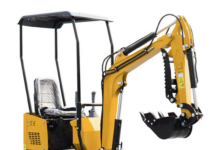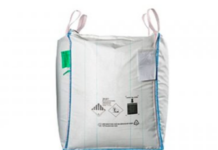In the fast-changing world of manufacturing, companies in the Netherlands are increasingly turning to Custom ERP Solutions for Manufacturing Netherlands to achieve efficiency, precision, and scalability. A well-designed ERP (Enterprise Resource Planning) system integrates multiple business functions—such as production planning, inventory control, supply chain management, and financial tracking—into one unified platform. This not only reduces manual processes but also enhances visibility across departments, enabling manufacturers to make faster and more informed decisions.
Why Manufacturing Needs ERP Integration
Manufacturing involves a complex interplay of processes—procurement, production, quality assurance, distribution, and after-sales support. When these functions operate in isolation, bottlenecks and inefficiencies can arise, leading to delays and cost overruns. ERP integration brings every operational component under one digital roof. From tracking raw materials to monitoring machine performance in real time, ERP provides the transparency needed for smooth and optimized workflows.
By automating routine tasks, ERP solutions free up resources for strategic activities. Managers can focus on improving production lines, optimizing workforce allocation, and exploring new growth opportunities, rather than spending valuable time on administrative duties.
Key Features That Drive Efficiency
A well-developed ERP system for manufacturing includes modules tailored to the industry’s specific requirements:
- Inventory and Supply Chain Management: Ensures stock levels are optimized, preventing shortages or overproduction.
- Production Scheduling: Allocates resources efficiently to meet deadlines without overburdening machinery or staff.
- Quality Control: Monitors product standards at every stage, minimizing defects and customer complaints.
- Financial Management: Tracks expenses, revenue, and profitability in real time, helping in accurate forecasting and budgeting.
- Reporting and Analytics: Provides insights into performance metrics, identifying areas for improvement.
When implemented correctly, these features help manufacturers cut down on waste, improve delivery timelines, and strengthen relationships with clients and suppliers.
The Role of Digital Customization
While off-the-shelf ERP solutions may address general business needs, manufacturing companies often require specialized features to match their production workflows. This is where customization plays a crucial role. A tailor-made ERP platform can adapt to unique manufacturing processes, integrate with existing software tools, and evolve alongside the company’s growth.
Customization also ensures that employees can work with an intuitive interface designed around their daily tasks. This not only improves adoption rates but also reduces the learning curve, allowing teams to leverage the system’s full potential from day one.
Linking ERP with Web Capabilities
In a digitally connected world, ERP systems are no longer standalone applications. Integrating ERP with online platforms—such as e-commerce portals, customer service dashboards, or supply chain tracking tools—creates a seamless information ecosystem. Businesses that combine ERP functionality with Custom Website Development Netherlands capabilities can offer customers real-time order tracking, accurate product availability updates, and quick turnaround on inquiries.
Such integration also empowers suppliers and distributors with instant access to relevant data, enabling better coordination and faster response times.
Overcoming Implementation Challenges
While ERP solutions offer numerous benefits, successful implementation requires careful planning. Common challenges include data migration issues, employee resistance to change, and budget constraints. These can be overcome by:
- Conducting a thorough needs assessment before selecting the ERP system.
- Providing training sessions to ensure smooth adoption.
- Rolling out the system in phases to manage risk and minimize disruption.
- Partnering with an experienced ERP development company that understands manufacturing dynamics.
When approached strategically, the implementation process becomes a stepping stone to long-term operational excellence.
Conclusion
For manufacturing businesses aiming to boost productivity, reduce costs, and maintain a competitive edge, a well-designed custom ERP is no longer optional—it’s essential. By integrating all critical functions into a single platform, ERP enables faster decision-making, better resource utilization, and improved customer satisfaction. Linea Digitech offers expertise in developing tailored ERP solutions and web integrations that align perfectly with business goals, helping manufacturers in the Netherlands achieve streamlined, scalable, and future-ready operations.




